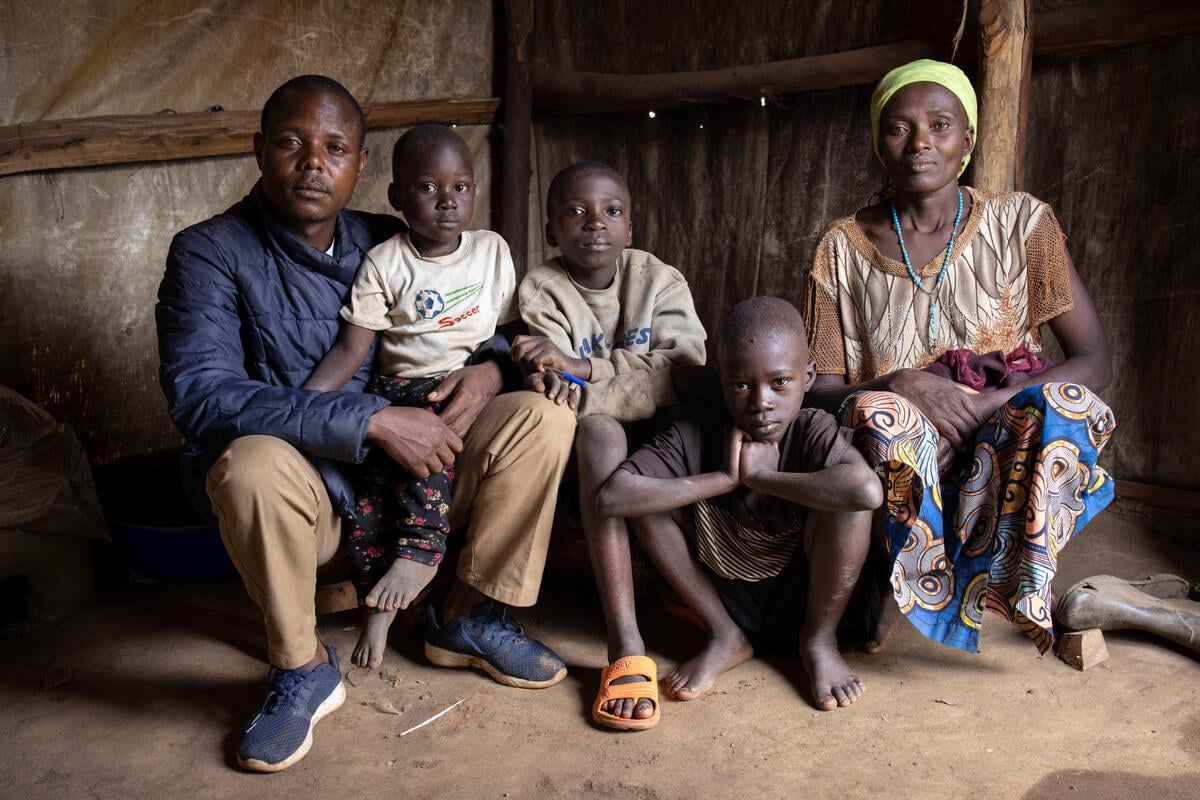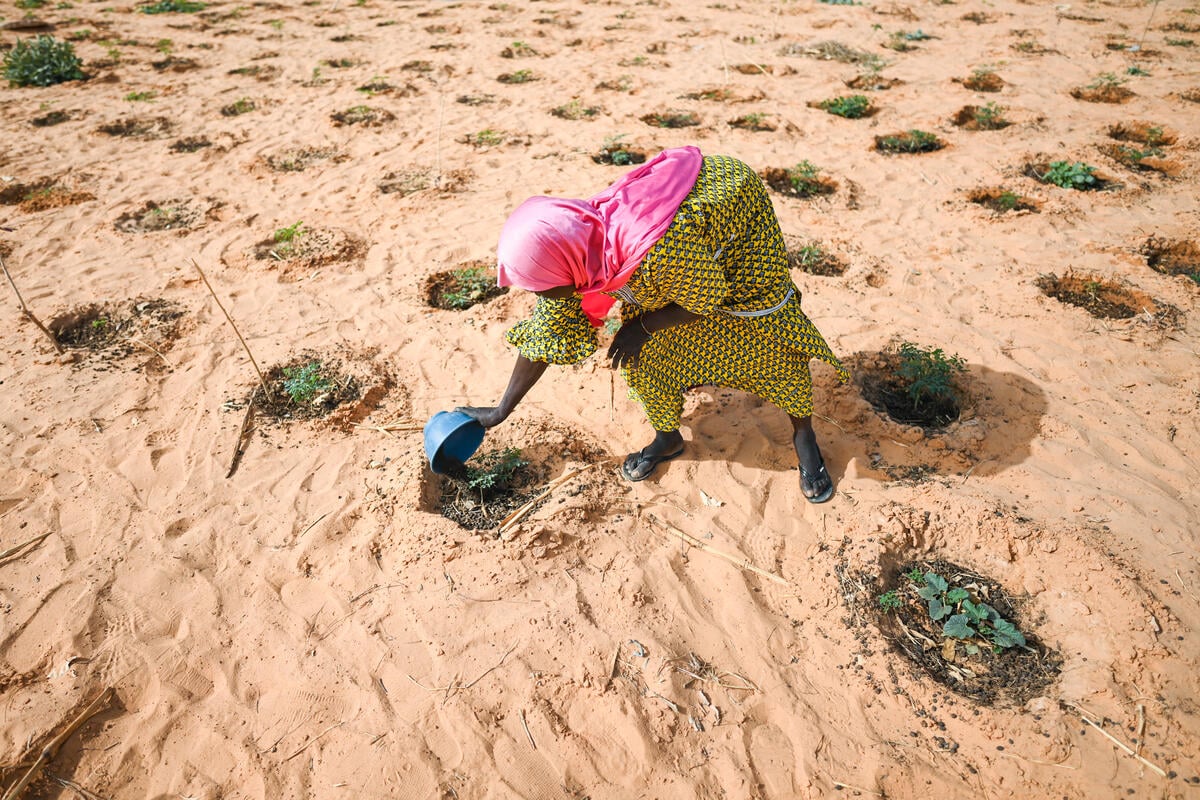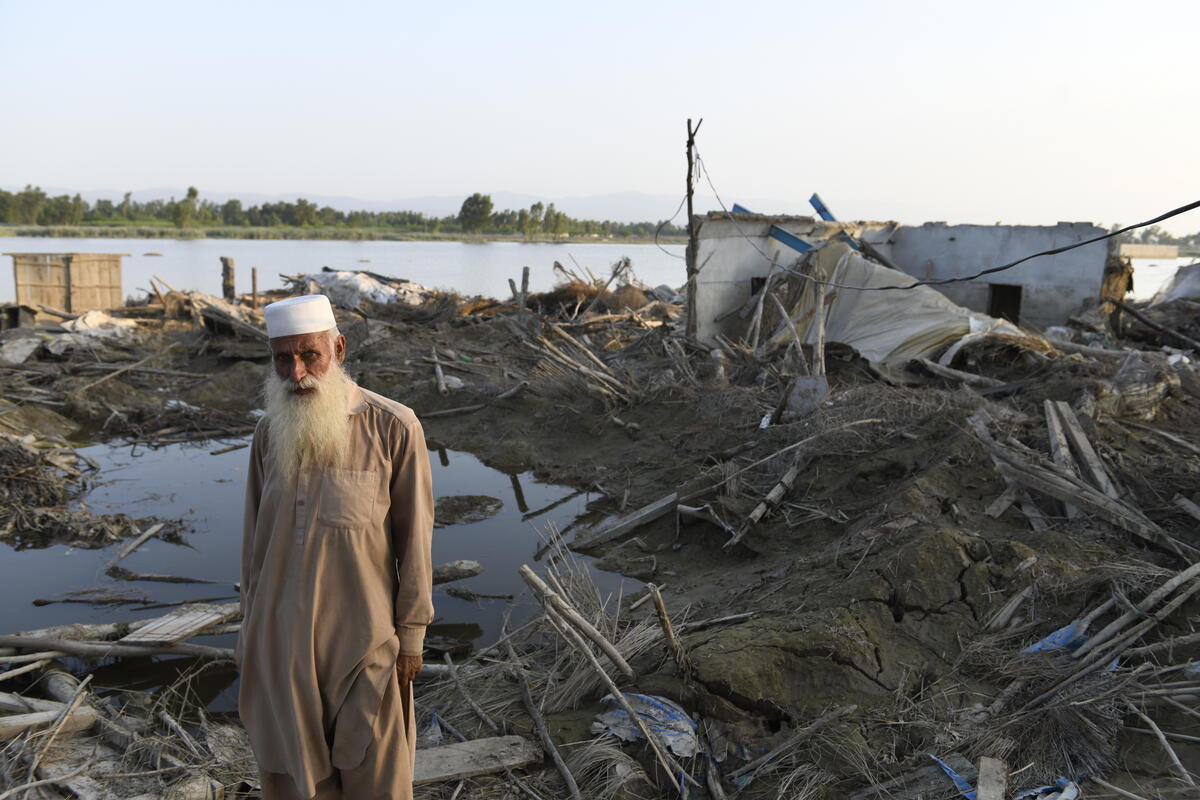Across West Africa dual challenge of conflict and coronavirus threatens millions of people
Across West Africa dual challenge of conflict and coronavirus threatens millions of people

DAKAR, Senegal - Across West and Central Africa, refugees, host communities, UNHCR staff and governments are working around the clock to protect millions of vulnerable people facing a renewed risk from the combined effects of conflict and the coronavirus pandemic.
COVID-19 has exacerbated challenges in a region already grappling with one of the world’s largest humanitarian crises, involving over nine million forcibly displaced people. The pandemic has led to border closures and increased strain on fragile health systems and weak economies.
UNHCR said in a statement on Friday it had stepped up support to governments in West and Central Africa, to help address the deteriorating humanitarian crisis with the focus on ensuring access to safety and trying to mitigate the effects of the pandemic.
“The time to act is now.”
“We are running against the clock. The time to act is now. We have until June, before the lean season starts and the full impact of the pandemic is felt,” declared Aissatou Dieng-Ndiaye, Deputy Director for West and Central Africa for the UN Refugee Agency, UNHCR.
“The coronavirus pandemic and resulting public health emergency will add another layer to an already a complex humanitarian and displacement crisis… Urgent action is needed before the situation dramatically spirals out of control,” Dieng-Ndiaye added.
West and Central Africa has one of Africa’s largest displaced population with some 5.6 million internally displaced, 1.3 million refugees, 1.4 million returnees who still need assistance, and 1.6 million Stateless. In the Sahel region, armed conflict and attacks on civilians have displaced nearly three million people, nearly one million since January 2019.
Since the first detected case at the end of February, the 21 countries of the region have reported a total of over 5,000 COVID-19 cases and just over 100 deaths. So far, only host populations appear to have been affected. However, a lack of coordinated efforts to prevent an outbreak could lead to a sharp increase among all communities.
“The risk of contamination is high.”
Mohamed, a refugee from Mali, now working with UNHCR in Dori in northeastern Burkino Faso said: “The risk of contamination is high among the IDP and refugee populations. Indeed, both populations now living together are exposed to certain factors that make it almost impossible for them to respect Covid-19 prevention measures.”
These factors included poor access to water and sanitation facilities and living in tiny overcrowded shelters, he explained.
“Such conditions and make respect of distance between individuals difficult. A general lack of drinking water compels women to crowd around rare water points all day long in search of a few litres,” he added.

UNHCR said it feared the Central Sahel, where a number of countries were already facing a protection and humanitarian crisis, was now on the verge of a major humanitarian crisis.
“The armed conflict has intensified and is forcing record numbers to flee their homes, while at the same time decimating the already weak health and education infrastructure,” added Dieng-Ndiaye.
Although, COVID-19 related restrictions are not targeted at refugees and asylum-seekers specifically, UNHCR has expressed concern that measures in the region could see people in need of international protection attempting even more risky and dangerous border crossings.
“We have no means to spare ourselves this virus.”
"I am very concerned about my children’s health, because they are vulnerable. I am exposed to the virus whenever I go to the market and I don’t wish to bring it home to my kids. I hear about masks and washing kits, but we don’t have any,” said Mariam Sylla, a refugee from Central Africa.
Moussa Fofana, another refugee, added: “If we catch coronavirus, what would become of us? What would we do ? Where would we go? We are lacking resources to protect ourselves. We hear things about the illness on the radio, but we have no means to spare ourselves this virus.”
In Cameroon, which currently has the highest number of cases in the region, refugees say they are aware of the dangers posed by the coronavirus.
“We will be more careful now. We are reporting any new presence from large metropolitan areas," said Oumarou Adamou, a refugee leader in Cameroon following an awareness raising meeting organized by UNHCR.

Staff member Haoua Sally working at UNHCR’s site in Batouri said prevention messages were being received and applied.
"When we arrive at the site, neither children nor women are reaching out to us as usual. Some cough in the elbow. They’re starting to understand and it’s very satisfying,” she said.
“Vigilance is essential. It is not a question of giving in to panic but of respecting the measures prescribed by the WHO and the government,” added Wahid Ben Amor, head of the UNHCR office in Bertoua. “We are doubly concerned, first there are refugees, who must be protected, as well as the personnel of humanitarian actors."
Additional reporting by Moussa Bougma in Burkina Faso, Chadi Ouanes in Mali, Xavier Bourgois in Cameroon.













